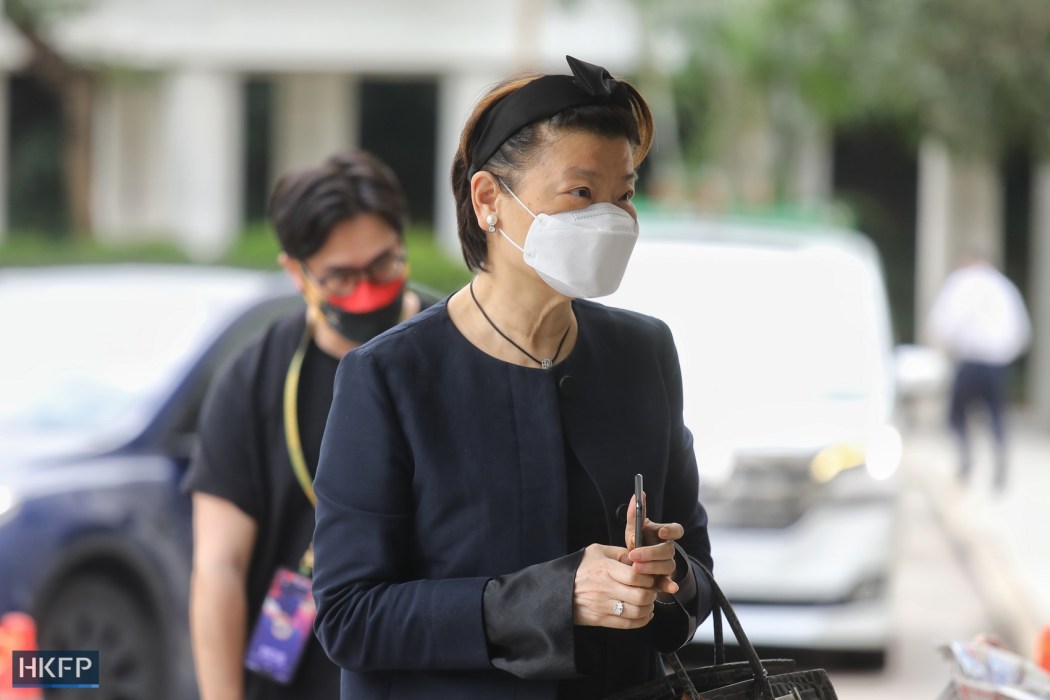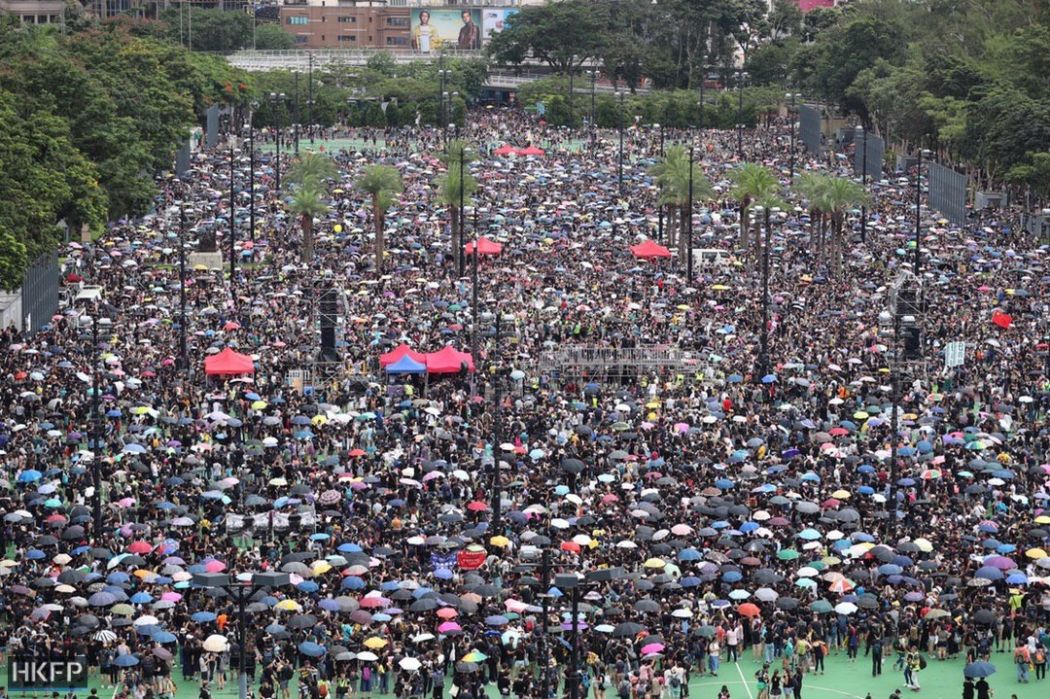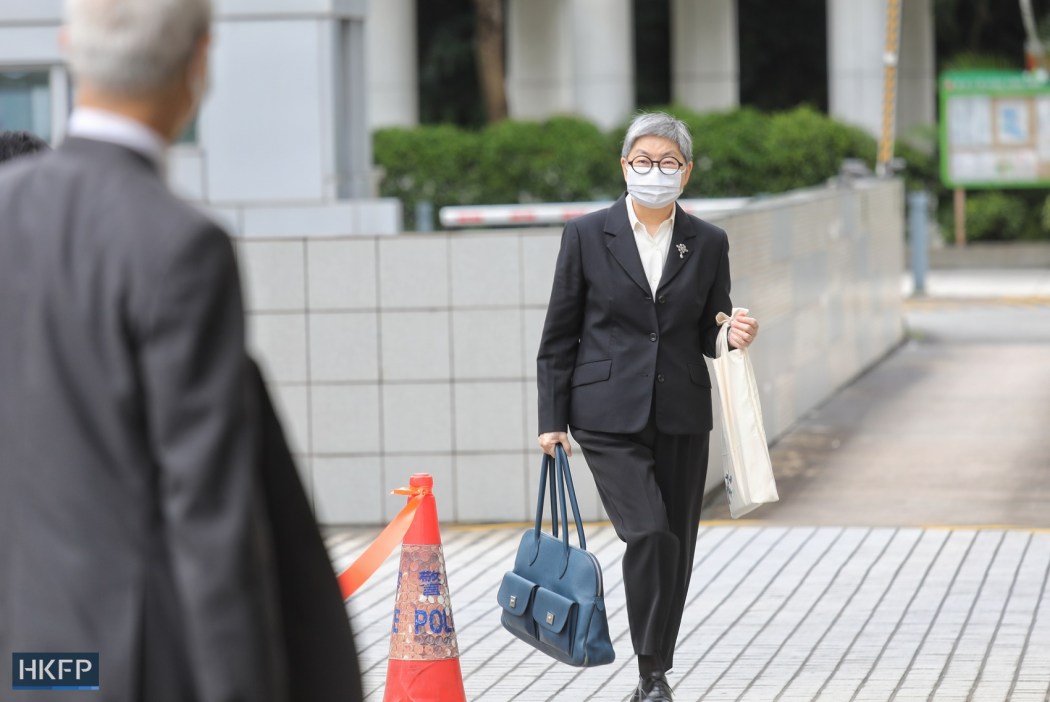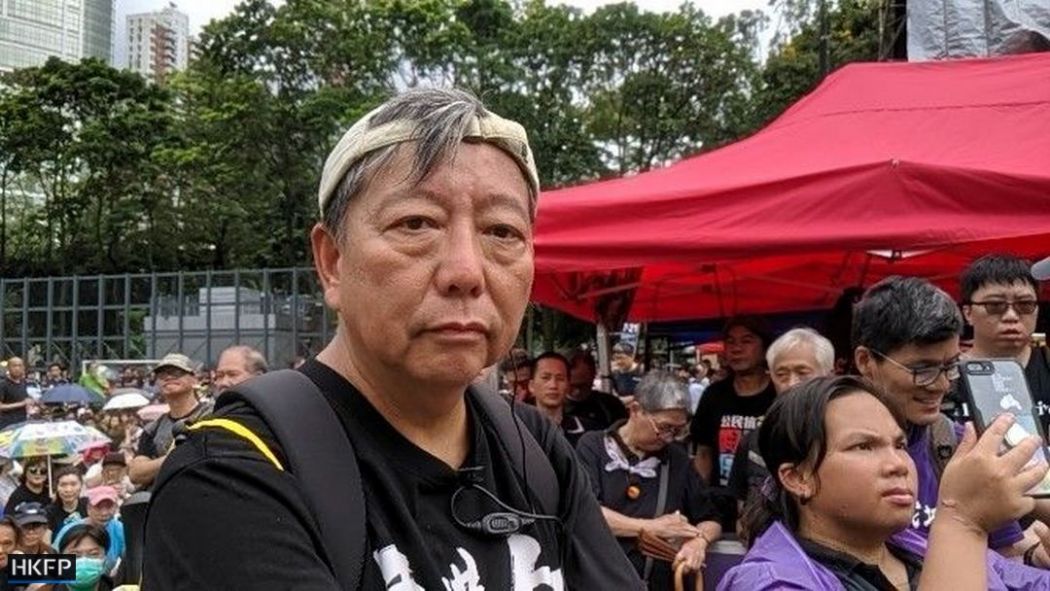Seven high-profile pro-democracy activists, including jailed media tycoon Jimmy Lai and barristers Martin Lee and Margaret Ng, have launched an appeal bid against their convictions and sentences over an anti-extradition rally in 2019.

Lai, Martin Lee, Ng, activists Lee Cheuk-yan and Leung Kwok-hung, and former lawmakers Cyd Ho and Albert Ho, were found guilty of organising and knowingly taking part in an unauthorised assembly on August 18, 2019. They were sentenced to up to 18 months behind bars, but some had their jail terms suspended.
Their application for leave to appeal was heard by Court of Appeal justices Andrew Colin Macrae, Maggie Poon and Anthea Pang on Monday. Lai, Lee Cheuk-yan and Leung, who are currently detained, were brought to the court in correctional services vans.

There was a heavy police presence, including armed officers and police trucks, guarding the various entrances of the High Court.
The League of Social Democrats, one of the few remaining active protest groups in Hong Kong, led a brief demonstration outside the court in the morning, saying peaceful rallies were not unlawful and decrying their suppression at the hands of authorities. LSD chairwoman Chan Po-ying is married to Leung.

Definition of ‘organising’
Barrister Audrey Eu, who represented Jimmy Lai, was the first to make submissions. She first contested the organising charge, arguing that the applicants could not be considered “organisers” because they were invited by the Civil Human Rights Fronts (CHRF) – which has since disbanded – to help with the event.
The CHRF at the time applied to hold a gathering at Victoria Park on August 18, 2019, to protest against police violence. They also applied to march from the park to Central and hold a second meeting in Central.
The police approved the static assembly at Victoria Park, but banned the march and the Central assembly. Activists later called on the public to join the “water flow” assembly, in which they would enter and leave Victoria Park dynamically.

The activists were charged for joining and organising the subsequent banned march from Causeway Bay to Central.
Eu said the CHRF was the actual organiser while the applicants in the case only accepted the group’s invitation to join the event. She used an example of a school organising a graduation ceremony and inviting some government officials as guests to officiate the event, saying the officials would not be considered organisers.
She added the water flow arrangement was part of a safe dispersal plan. Eu said having a “common purpose” was what constituted a procession, but if the purpose was a safe and orderly dispersal, that could not be considered a procession.

Eu added when police met the press a day ahead of the scheduled gatherings, they also referred to a “tidal flow” arrangement for crowd management.
Previously, a lower court disputed the dispersal claim, saying it was just a workaround of the march ban.
Philip Dykes, who represented Lee Cheuk-yan and Cyd Ho, also argued that although some of the defendants were seen holding a large banner, walking in front of the pack and chanting slogans, that did not change the fact of who was the organiser of the processions. Just being present at the procession, facilitating it or enabling it to move along did not make people an organiser, he argued.
“Police were also along the procession – you may also describe them as the organiser – but that’s not the case,” Dykes said.

Ambrose Ho, who represented Margaret Ng, meanwhile said organising means to “bring about an event” and implies a person has to be involved in the “preparatory acts” beforehand. Ho said Ng was not present at the head of the banner group when the alleged march to Central took place and she only showed up 20 minutes later, so she could not have been an organiser.
Macrae interrupted and asked if Ng had arrived at Victoria Park beforehand. Ambrose Ho said she had, and was described as speaking with CHRF members. However, suggesting Ng was an organiser simply because she was seen meeting the event’s organiser and speaking with them was “far from criminal standard,” Ambrose Ho argued.
Organisational roles
The government, represented by barristers Priscilia Lam and Benjamin Yu, meanwhile reiterated the organising role of all seven applicants.
Lam said the defendants were seen in front of the march, with some holding a loud hailer and leading others to chant protest slogans, such as “I have the right of procession. No police permission is required.”

She also said Jimmy Lai, who was holding a corner of the large banner, had at times made hand gestures amounting to giving directions to people who followed, suggesting he was part of the organising group.
The applicants’ early arrival at Victoria Park and the participation of some at a previous press conference were also signs of them being an organiser, Lam added.
Lam also said the activists led the public on a route that mirrored the planned route proposed by the CHRF, showing that they had the knowledge and “deliberate planning” to circumvent police’s ban on the march.
Rallying effect
The applicants were all well-known figures and known for their pro-democracy stance, Lam said. “There is a rallying effect of this group of defendants,” suggesting they would draw people into the procession.
Lam said on the day of the incident, it was raining heavily and the “rallying effect” of the activists was able to draw the large crowd for around one and a half hours and “keep them together” despite the bad weather.

Lam said apart from the activists seemingly giving directions to other people in the march, they also prevented the procession from “disintegrating.”
“Without their organisation, people may leave and go to MTR stations to disperse… Without all these leadership, the public procession may fall apart,” Lam said.
Macrae asked whether “leadership means organisation,” Lam replied the leadership helped “hold the procession together.” She cited the reasons for verdict by trial judge Amanda Woodcock as saying “without the defendants forming the banner party it is unlikely the procession would have come into being.”
The hearing will continue on Tuesday and Wednesday. Before Monday’s hearing ended, Eu applied to have her client excused from attending the proceedings the next two days, saying Lai suffered from fatigue and was not feeling well. The judging panel allowed it.
Support HKFP | Policies & Ethics | Error/typo? | Contact Us | Newsletter | Transparency & Annual Report | Apps
Help safeguard press freedom & keep HKFP free for all readers by supporting our team

LATEST FROM HKFP
HKFP has an impartial stance, transparent funding, and balanced coverage guided by an Ethics Code and Corrections Policy.
Support press freedom & help us surpass 1,000 monthly Patrons: 100% independent, governed by an ethics code & not-for-profit.










